Over the years I’ve done a lot of work with personal sovereignty. This is work that is never-ending. Why? Well, we must be vigilant in so many areas or our lives and in our own sovereignty, in order to cultivate it and nurture it: it’s not a one shot deal. We don’t do the work once and that’s it. It’s a process. Like learning, expanding our horizons, becoming better people, becoming who we are meant and want to be; it’s all a process.
I’ve had to learn how to be discerning in my life: in who gets to be a part of it, whose energies I will allow in, and also what I consume. Life throws so many things at you that you can’t control. However, what you can control is your own actions and your own personal sovereignty. It’s all about choice. You can, for the most part, choose who gets to be a part of your life, and who doesn’t (as an adult, at least). Yes, you will have colleagues, bosses, other people in your life who aren’t chosen, but here I’m talking about the inner circle of your life. Who gets to affect you on a personal, energetic, physical and even psychic level? Who can you leave at the door, willingly, when you walk into your personal space?
Discernment is such an important concept in our lives. When we have the power to choose, we are taking part in our own discernment and our own sovereignty. And we do, in fact, have a lot of power to choose. It’s all about finding out which areas you can boost in your discernment. Income, environment and other factors will have an affect on your discernment, and so you have to make the choices that work for you. What works for me may not work for you, or even be available to you. So we have to work with what we’ve got, first and foremost.
In this article I’m going to talk about some of the things that we consume. I’ve spoken many times about what we consume on a physical level, from a Druid’s and Pagan’s perspective, and from a Zen perspective as well. But here I’ve going to talk about what we consume on an energetic level.
Protection magic is probably the biggest area of spellcrafting in Pagan circles. Why is that? Because we are exposed to all sorts of energies throughout the course of a single day that we need to take a closer look at, and think about how it is affecting our lives. For me, it’s important to work with prevention, and that way we won’t need so much of the cure. Taking a look at the energies that we allow into our lives before they begin to affect us is the first step in this process of discernment. We may do this on a physical level already, ie., we take off our shoes before we enter into the home, to keep the dirt, bacteria and other nasties out of our home. Think about it: your shoes have been in public toilets, walked through pavements covered in all sorts of nasties such as dog wee and poo, gum, spit, etc. Do we want to track all that back into our house? Hell no. So we take our shoes off at the door. One moment spent in an airplane, train or public toilet will have you wanting to remove your shoes before you take all that into the house with you. Guaranteed.
Doing the same with energy is extremely beneficial for you too. Did you have an argument with your boss, or did someone express road rage at you on the way home? Did someone say an unkind thing to you online, or in person? Have you watched the latest world tragedy on the news, or had your television pumping out violent scenes in your living room? These all have energy, which can build up in your home and in your soul. It’s already been proven that when we are exposed to violence, we become de-sensitised to it. What I want to do is to sensitise you again, so that you are aware of these energies that affect you on a daily basis. Words and images have power, names can hurt you just as much as sticks and stones. In a world where there is more media than ever being consumed, the sheer amount of information being thrown at you whether you wanted it or not is completely staggering. So what can we do about it?
This is where discernment comes in. We can choose what we allow into our personal space in so many ways. Do you watch the news first thing in the morning on the televison while having your breakfast? Do you feel down and a little depressed with the world afterwards? Maybe you should consume this form of media at a different time, and perhaps even in a different way. Reading the newspaper can be a big help for those of us who are sensitive to images of violence and grief which are the mainstay of all the major news networks on television today. I literally can’t watch 30 mins of news with crying, because the energy of people’s suffering on the screen is real, and I know that. When I see people wailing as they search through the rubble for their child, I know that it is real. It’s not an abstract or a movie, it is real life. That energy will affect me for the rest of the day. Some people are a lot less sensitive, and can watch it and get on with their day. But I, for one, would never, ever want to be de-sensitised to violence and grief, because that is the mainstay of my own personal compassion for others and my ability to empathise. I can’t turn it off, and I wouldn’t want to, for compassion and empathy I feel make me a better person. But what I can do is to select just how much I intake these energies, so that they don’t overwhelm me on a daily basis. There is not a lot that I can do for earthquake victims thousands of miles away, apart from donating to a charity to help them. But what I can do in my own environment is a lot more, and that is where I need to spend my energy.
Social media. Yikes. When I think of the past times and energy that I have spent with people whom I don’t know from a hole in the wall, I literally cringe. Don’t waste your time and energy arguing or even interacting with nasties on social media. It depletes you and just adds to the barrage of energy that is sapping you dry. Instead, be discerning about who and what you interact with on social media. And spend less time on there overall, because the real world matters a whole lot more. Doomscrolling is a disease. Get out and turn your face to the sun, the wind, the rain, the stars. Those are energies that are a whole lot better to consume than insults or even material from people you don’t know and over which you have very little control in how it’s being presented to you. Choose your friends, your contacts, your groups wisely. Be selective about the ads that you see. Don’t let the algorithms dictate what you will see, but instead create your own. You are not 100% at the mercy of social media providers. You are a consumer, and so you will have a say in things, even if it’s a lot smaller than you would wish. And if this is a really big issue for you, then leave it altogether. More and more people are doing this, and it’s not entirely a bad thing. Choose your social media intake wisely. Be discerning, and be sovereign.
I could probably write a whole book just on this subject, and so I will keep this article in check and just remind myself, and others, to look deeply at what it is that you are consuming and bringing into your personal space. If we are discerning about the energies that we allow in, we will need a lot less protection magic and work in the long run. It’s the first step in any energy work, and the basis of all personal sovereignty.
Blessings to you and yours.


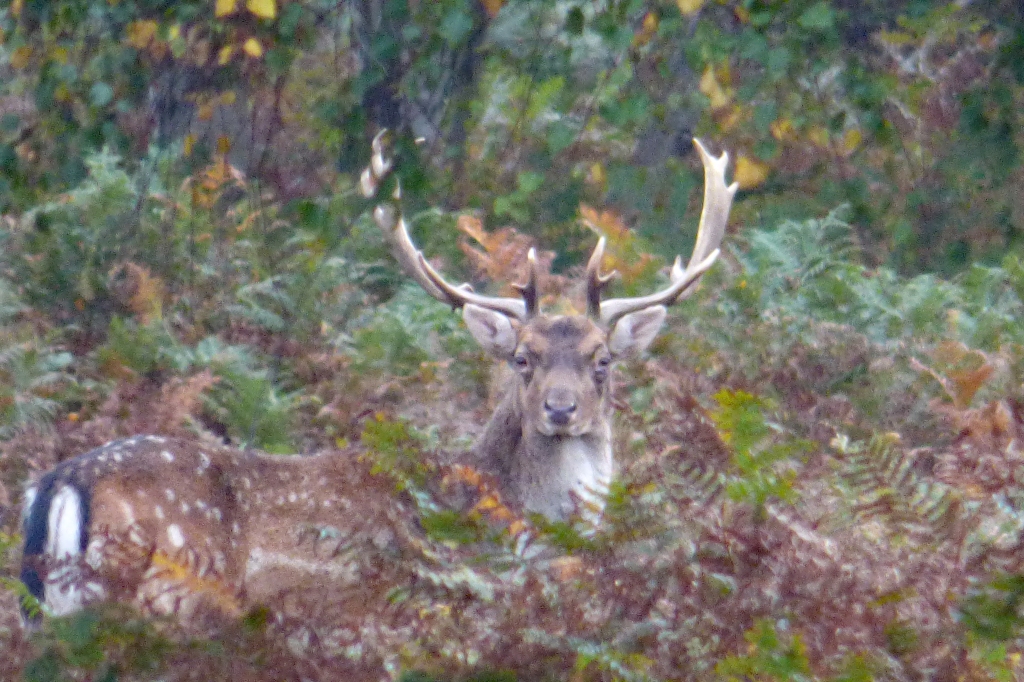
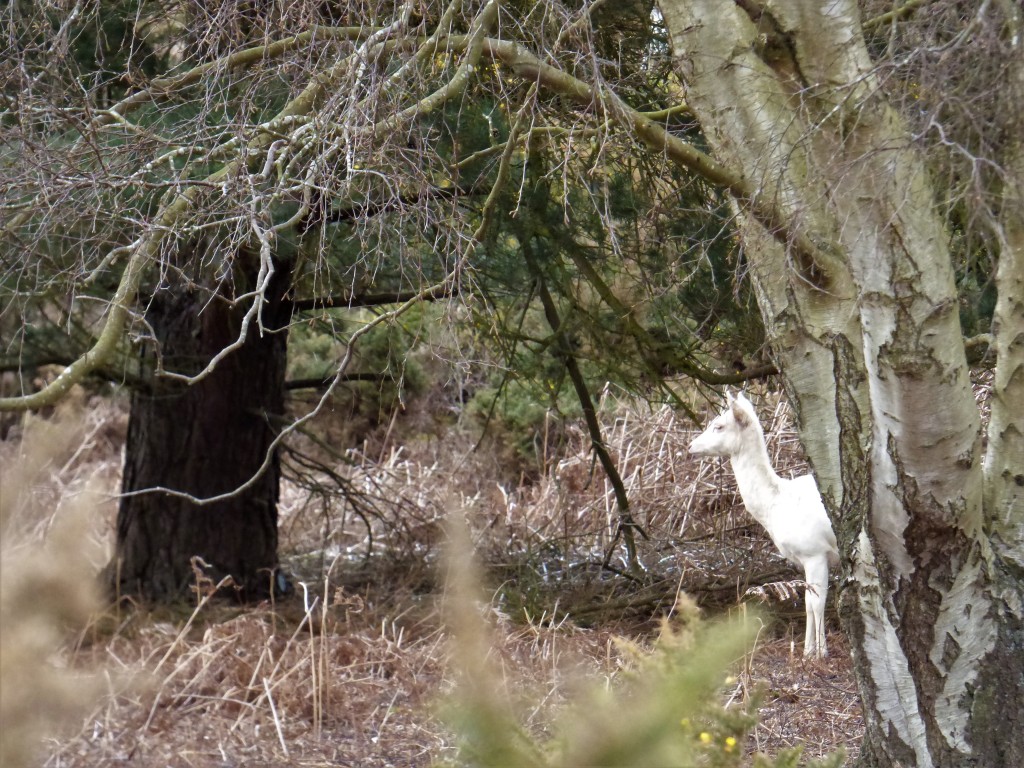
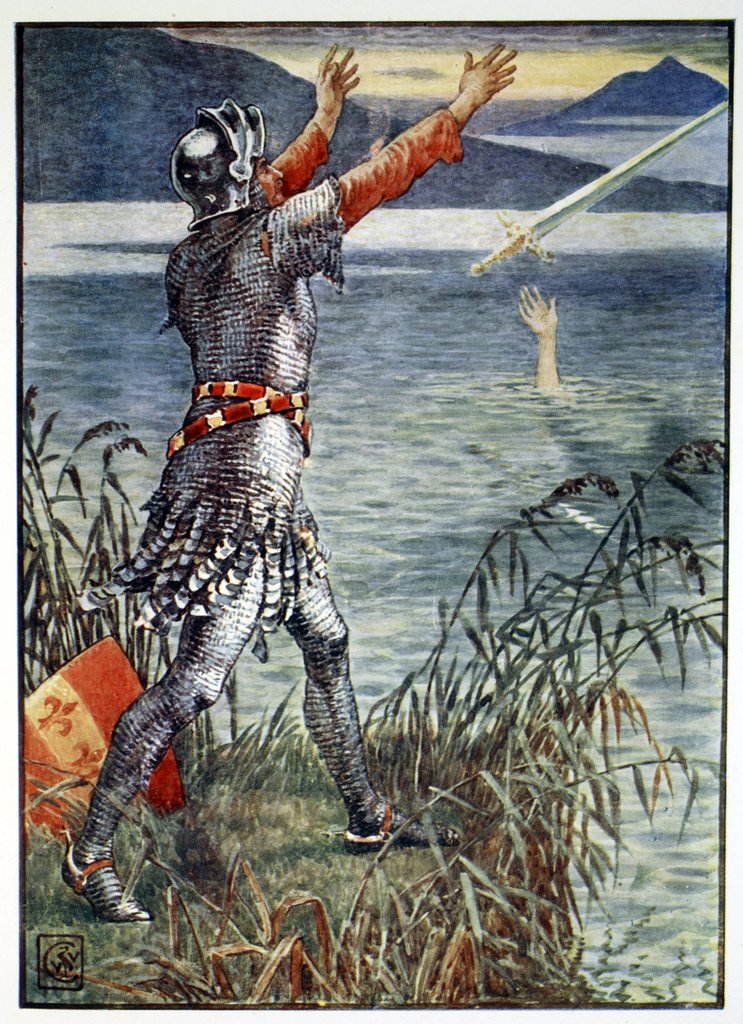
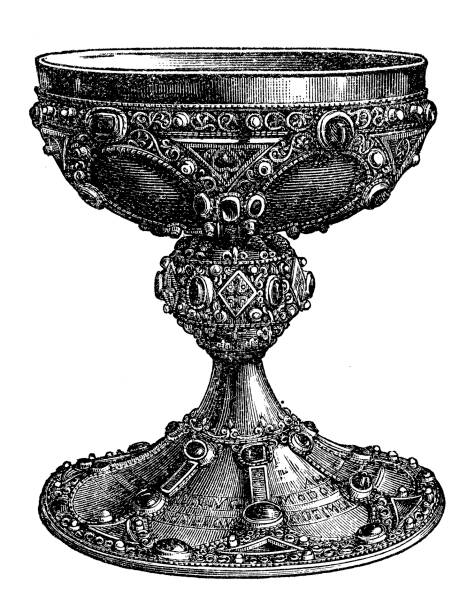
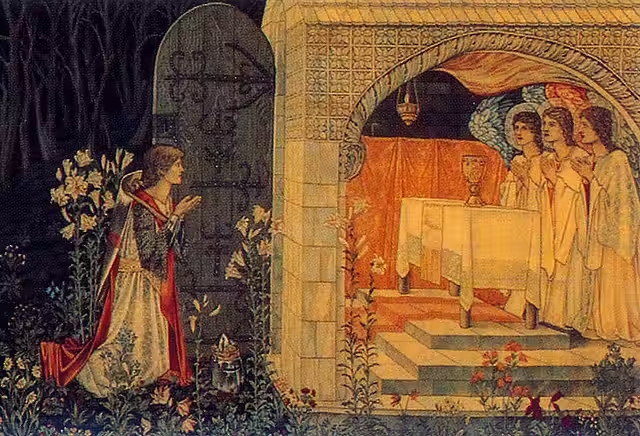
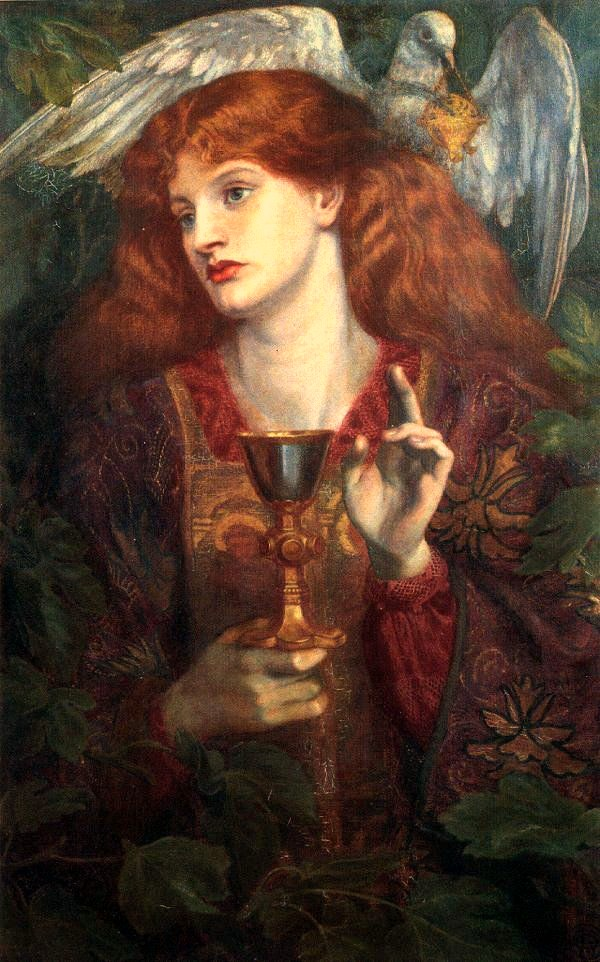

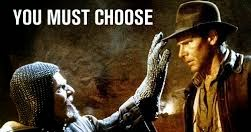
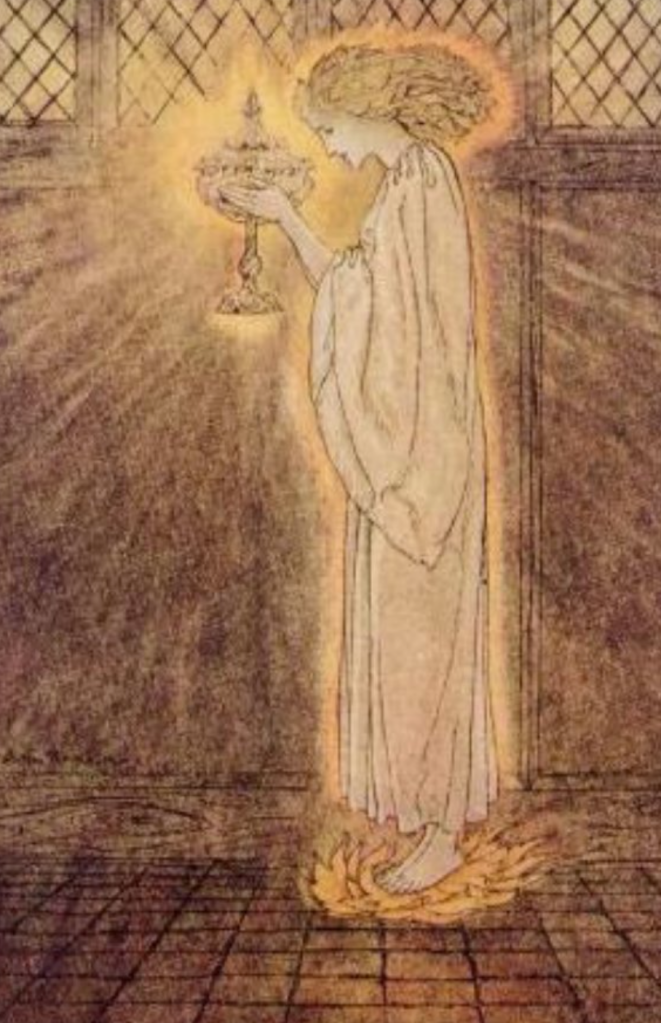
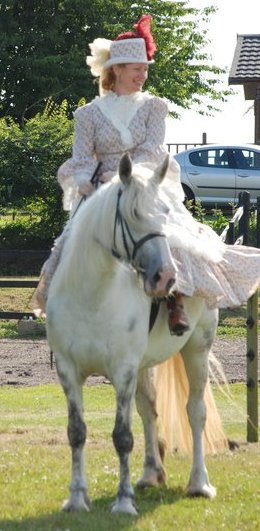 Riding side-saddle is both easy and difficult. It’s a strange dichotomy of being securely “locked in” and feeling like you’re going to slide out the side at any moment. I took lessons riding side-saddle, and also did some jumping. I even rode down the aisle at my wedding side-saddle! When I compare this to working with the goddess Rhiannon, I can see how she is often portrayed as riding side-saddle, and I think the fact that she’s wearing skirts is only part of the reason.
Riding side-saddle is both easy and difficult. It’s a strange dichotomy of being securely “locked in” and feeling like you’re going to slide out the side at any moment. I took lessons riding side-saddle, and also did some jumping. I even rode down the aisle at my wedding side-saddle! When I compare this to working with the goddess Rhiannon, I can see how she is often portrayed as riding side-saddle, and I think the fact that she’s wearing skirts is only part of the reason.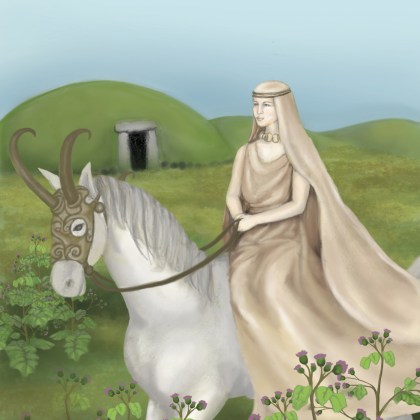
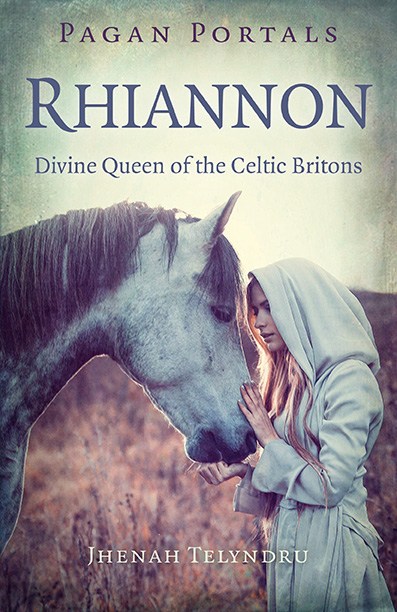 I’ll be working closely with Rhiannon over the next few months, and I look forward to the insights that she brings. If you are interested in this goddess, there is a brilliant book written by
I’ll be working closely with Rhiannon over the next few months, and I look forward to the insights that she brings. If you are interested in this goddess, there is a brilliant book written by  Many people here in the West have made New Year’s resolutions. I for one think that this tradition is a good one, for I’m always seeking to improve myself, to live in better harmony with the world around me. I know that I can’t change others, only myself, and lead by example. And so, a resolution or three can help me to achieve that goal.
Many people here in the West have made New Year’s resolutions. I for one think that this tradition is a good one, for I’m always seeking to improve myself, to live in better harmony with the world around me. I know that I can’t change others, only myself, and lead by example. And so, a resolution or three can help me to achieve that goal.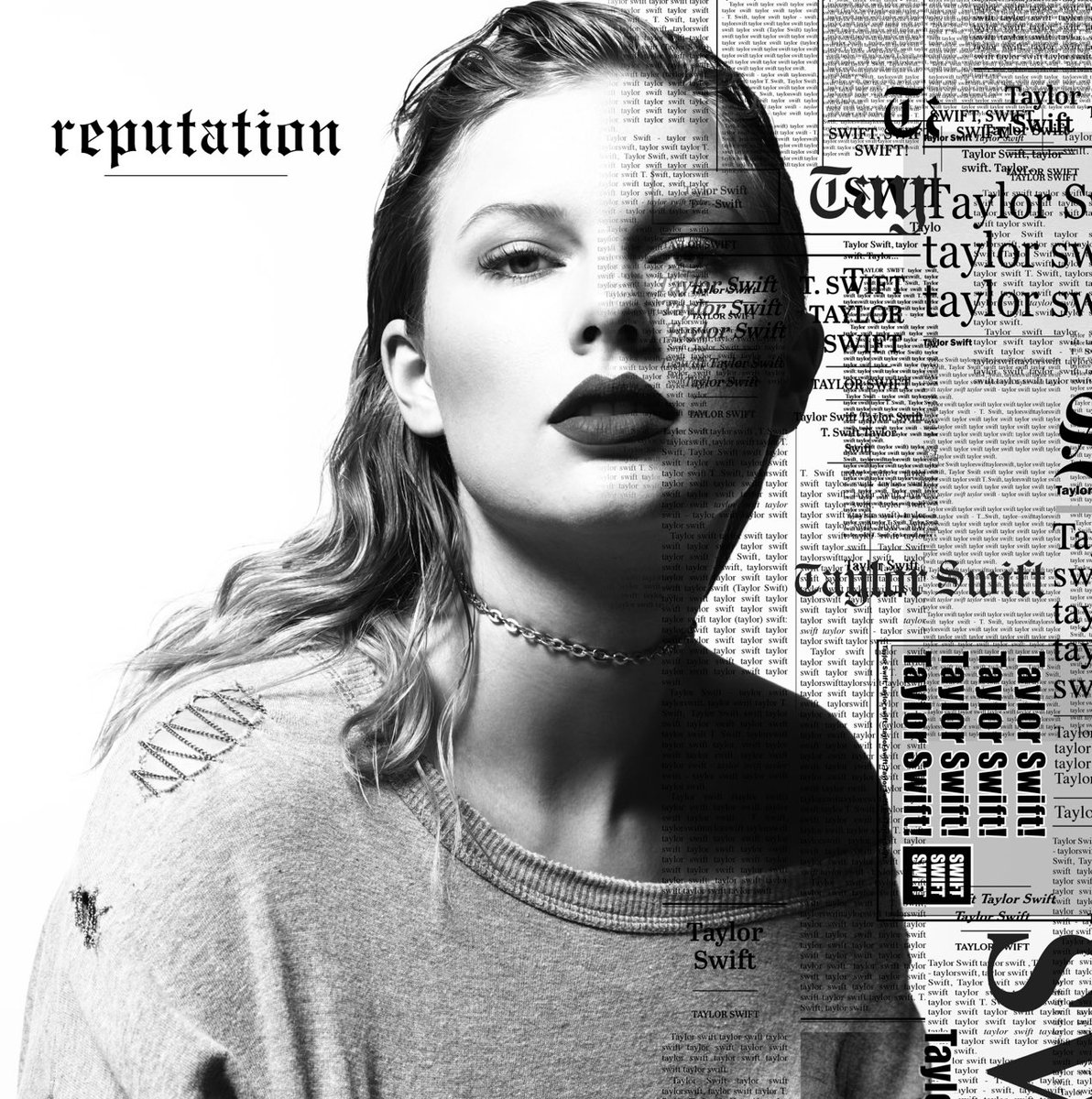 The song and video also points out that we need to take responsibility in our lives, which includes personal and emotional responsibility. The title, “Look What You Made Me Do” is referencing that fact that we often blame others for so many things, which engenders a lack of personal responsibility when it comes to the art of basic living. We need to take responsibility back for ourselves, for our actions, our words, our thoughts and emotions. When we do so, we pull of the mask that allows us to stay in our wounded selves, and to fly free with the wings of freedom and sovereignty. The reaction of others to this, well, what can I say? Some may praise you for it, some may criticise, some may hate and some may love you for it. The title is also a comment on how the media have created and fabricated all these stories about her, making her as a media-created character do and say things that are completely false. Taylor Swift’s new album (available beginning of November) is called Reputation, is yet another examination of the power of story, and who is telling it, and to whom.
The song and video also points out that we need to take responsibility in our lives, which includes personal and emotional responsibility. The title, “Look What You Made Me Do” is referencing that fact that we often blame others for so many things, which engenders a lack of personal responsibility when it comes to the art of basic living. We need to take responsibility back for ourselves, for our actions, our words, our thoughts and emotions. When we do so, we pull of the mask that allows us to stay in our wounded selves, and to fly free with the wings of freedom and sovereignty. The reaction of others to this, well, what can I say? Some may praise you for it, some may criticise, some may hate and some may love you for it. The title is also a comment on how the media have created and fabricated all these stories about her, making her as a media-created character do and say things that are completely false. Taylor Swift’s new album (available beginning of November) is called Reputation, is yet another examination of the power of story, and who is telling it, and to whom.